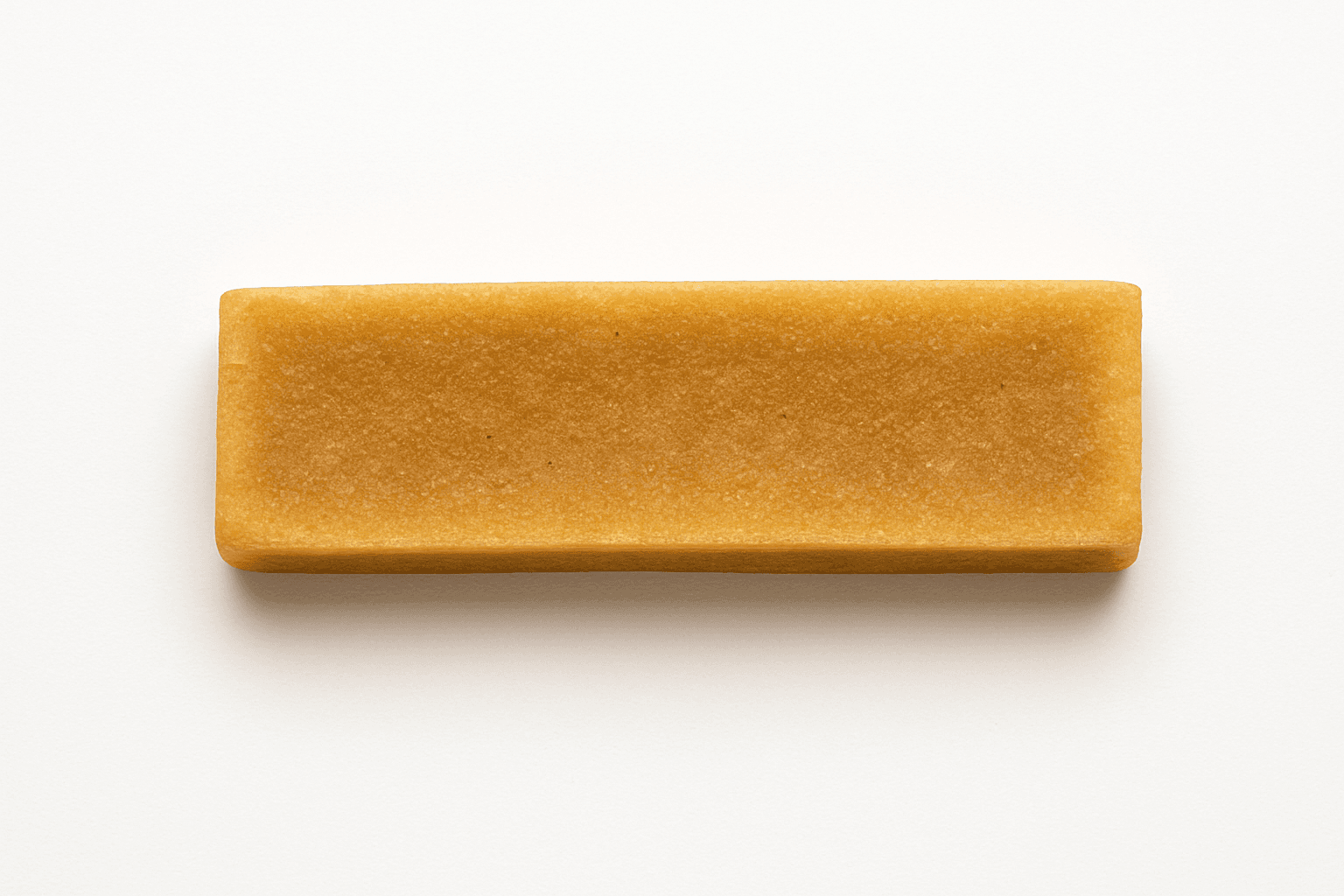Everest Dog Bite (Himalayan Yak Chews)
Everest dog food, most commonly known as Himalayan Yak Chews, is a type of natural dog treat made using traditional recipes from the Himalayan regions of Nepal and Tibet. These chews are crafted primarily from yak and/or cow milk, which is hardened and smoked to create a durable, long-lasting chew that is safe and digestible for dogs.



Ingredients
The core ingredients are:
Lime juice – used to curdle the milk naturally
Salt – a natural preservative, used sparingly
No artificial preservatives, colors, or chemicals
Yak milk (and often cow milk mixed in)
The mixture is compressed and dried for several weeks to harden into a chewable product.
Traditional Craftsmanship
This dog chew is made using centuries-old Himalayan cheese-making techniques. Known locally as “Chhurpi” for human consumption, the hard version of this cheese is repurposed as a durable dog chew, taking advantage of its:
Natural hardness
Long shelf life
Nutritional value
This process empowers local farmers and artisans in remote Nepalese villages, offering a sustainable income source and helping preserve traditional practices.
Nutritional Benefits
Himalayan yak chews are known for being:
High in protein (over 50%)
Low in fat
Rich in calcium
Grain-free and gluten-free
Easily digestible, especially once chewed and softened
They also promote:
Dental health by naturally scraping away plaque and tartar as dogs chew
Mental stimulation due to their long-lasting nature
Suitability for Dogs
These chews are ideal for:
Medium to heavy chewers
Dogs of all sizes, with size-specific chews available
Dogs with allergies to common proteins like chicken or beef
Pet parents seeking natural and limited-ingredient diets
Note: It's important to supervise dogs while chewing and to microwave small leftover pieces into a puff treat to avoid choking hazards.
Sustainability and Ethical Sourcing
Made from milk collected from free-range, grass-fed yaks and cows in the Himalayas
Often produced by cooperatives and small-scale family farms
Minimal environmental impact, as the process uses basic tools and natural drying
Many brands now follow fair trade principles




